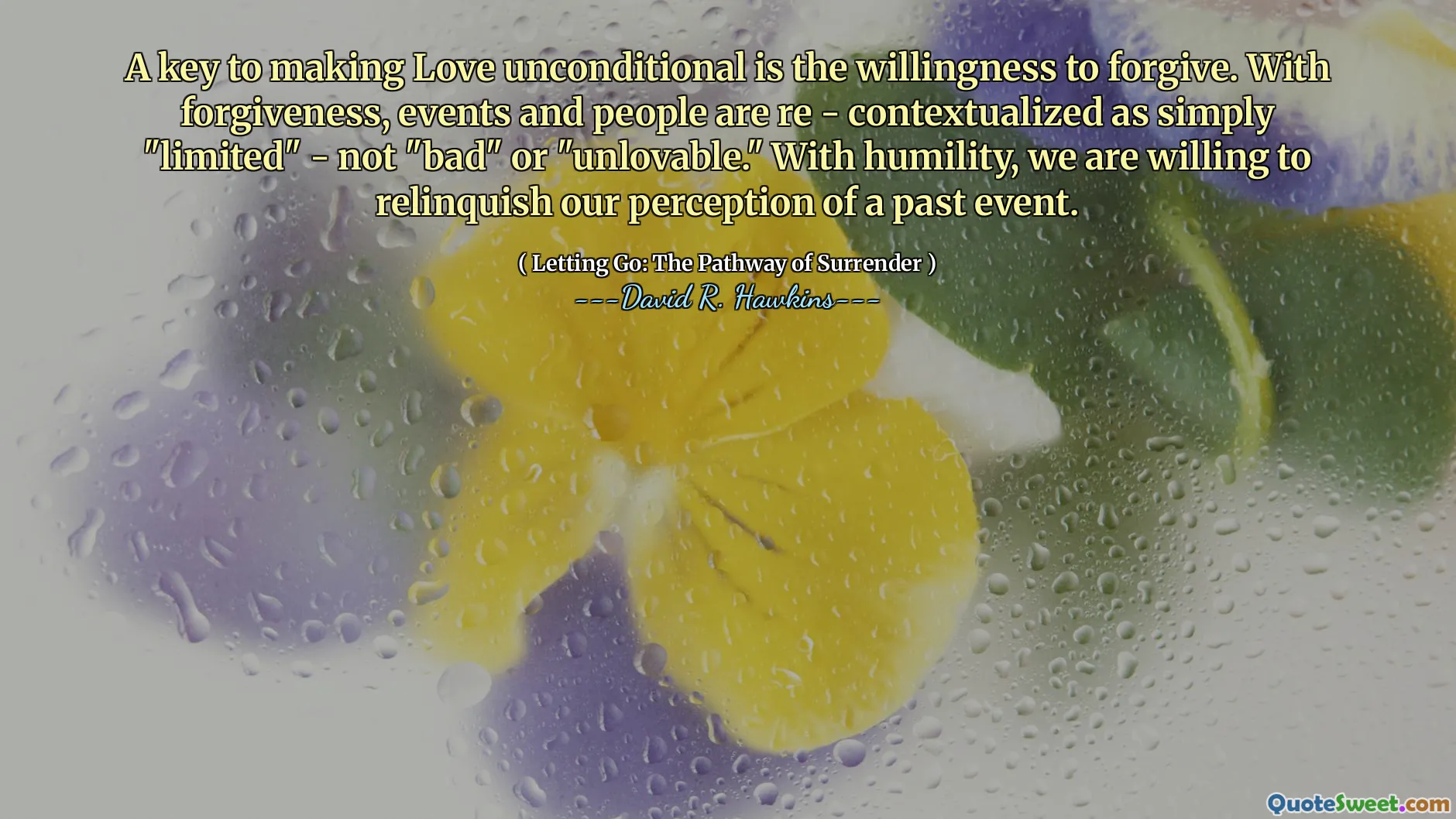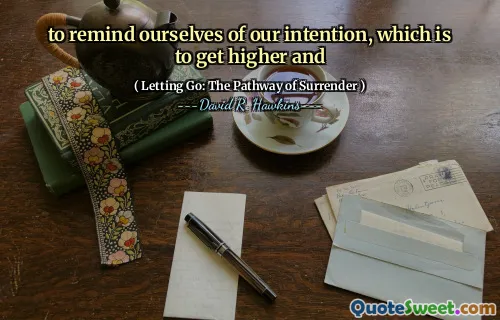
A key to making Love unconditional is the willingness to forgive. With forgiveness, events and people are re - contextualized as simply "limited" - not "bad" or "unlovable." With humility, we are willing to relinquish our perception of a past event.
This quote from David R. Hawkins' Letting Go: The Pathway of Surrender beautifully captures the essence of unconditional love by linking it closely with forgiveness and humility. Forgiveness here is portrayed not merely as a moral imperative but as a transformative process that alters how we see the world and those around us. By forgiving, we reposition our judgments and narratives about others and our past experiences, recognizing that limitations do not equate to inherent negativity or unworthiness of love. This perspective requires a profound shift from seeing wrongdoings as irredeemable or as a reflection of someone's intrinsic value, to viewing them as human imperfections that do not diminish their capacity for love.
The humility mentioned is equally critical—it softens the ego's grip on personal narratives and invites a release of the past's hold on our present emotional state. This relinquishment is a conscious choice to no longer be influenced or controlled by previous events and perceptions, which often keep love conditional and fragile. When the ego is let go, judgment softens and compassion can flourish. Forgiveness, therefore, stands not just as an act toward others but as an inner work of liberation.
In a world where wounds and grievances often define relationships, this quote reminds us that unconditional love is fostered through an active, ongoing willingness to forgive and to see beyond limitations. It points to the power of surrendering our rigid perceptions as a necessary step to deepening love and connection, emphasizing that love's true nature is expansive and inclusive rather than conditional and exclusionary.








